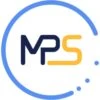Blockchain technology was first intended for secure cryptocurrency transactions. Successfully rooted in this field of application, it was introduced into other industries. Thus, the educational sector has now started benefiting from a decentralized network.
With modern e-learning tendencies, a significant data flow is carried out through the web. Students, teachers, and third-party suppliers make an informational exchange during the educational and training processes. Blockchain LMS can guarantee secure user interaction, providing a data recording system resistant to hacks, outside control, or modification.
Training materials now can be available from any device, and their reliability doesn’t raise doubts. In addition, unique tools check the authors’ qualifications to guarantee appropriate skills availability for specialized content writing.
This article will explain how Blockchain technology can be used to enhance teaching and learning processes and their outcomes. We’ll find innovation\'s advantages and highlight obstacles that decrease recipients’ interest.
What are the benefits of Blockchain in e-learning?
The educational industry is affected by the new technology most of all. Blockchain is overcoming a lot of challenges associated with an increasing number of online content, its recording, and maintenance. Meet the main benefits of Blockchain in education, which establish e-learning fairness and become an understandable tool for everyone.
Excellent data integrity
The complete information within the Blockchain educational system is managed by its members, not the central authority. All data streams are reliable and verified, so users can ensure fraudsters do not disseminate their materials. Secure storage in the educational environment is a significant factor for students\' success.
Effectiveness
Blockchain in online education supports easy and productive learning. Tutors can monitor the progress of separate persons, give immediate feedback, and assess students’ knowledge. Thus, studying becomes more effective than the traditional classroom style, especially for persons who can’t attend offline lessons. Moreover, increasing user satisfaction in course performance, maintenance, and data safety makes learners motivated to upgrade skills, and teachers can compound educational materials more effectively.
Virtual Classroom Learning: Educational High-Tech Frontier within Your Reach
Trust-worthy information
Blockchain in e-learning excludes questionable material entry into the network, providing degrees and other credentials verification for course writers. The system checks users\' certificates\' reliability to weed out falsifications. Learners can ensure that, for example, a psychology course is drawn up by a specialist with an appropriate degree in this field. Thus, Blockchain technology in education lowers the risk of being misled with not up-to-date information that could negatively impact skills.
Affordable pricing policy
Cost is one of the main issues when it comes to learning affordability. People who don’t have sufficient financial means to get better academic knowledge find their salvation in the educational Blockchain projects. Thus, online studying saves students money on rental and transport expenses compared to full-time study at a university or college.
Worldwide access
Not all universities have access to innovative research and high-quality training materials. And this is one of the biggest problems of modern learning systems. The use of Blockchain in education solves this issue by opening gates to the best global practices, instructions, and courses developed by talented people worldwide. Regardless of location and degree, anyone can enter the area of relevant certificated information and the newest research works. Furthermore, Blockchain code, implemented in e-learning, erases boundaries in time, place of residence, qualification, and income for individuals.
Everybody who shares and uses the learning materials dramatically benefits from the applications of Blockchain in education. This powerful technology provides time-saving and cost-effective training methods and makes it more accessible for individuals’ professional growth.
At the same time, we can face several disadvantages of Blockchain in education, which need to be removed for further e-learning sector growth:
- Costs. With numerous positive features, technology can be too expensive for implementation. In addition, there is a need for an existing system modification and hardware updating if it’s too old and doesn’t fit the transitioning requirements. The lack of qualified Blockchain staff also leads to additional investments in skilled developers.
- Scalability. One of the recommendations for technology in education is to improve the maintenance of massive data amounts. With the increasing number of participants and content, new blocks for information storage appear. As all transactions need to be verified, their speed slows down.
- Adoption rate. Since Blockchain is just gaining momentum, a lot of organizations are on their way to adopting such training certificates. However, for many, the fact that the technology is associated with cryptocurrency or money laundering remains a gray area, which has led to distrust and unacceptance. So, such credentialing should be popularized first to give an equal opportunity to all students and employees.
We hope that all the obstacles in ledger applications will soon become rules, not exceptions. And for now, let’s see how to implement Blockchain in education and take the maximum advantage of this symbiosis...


